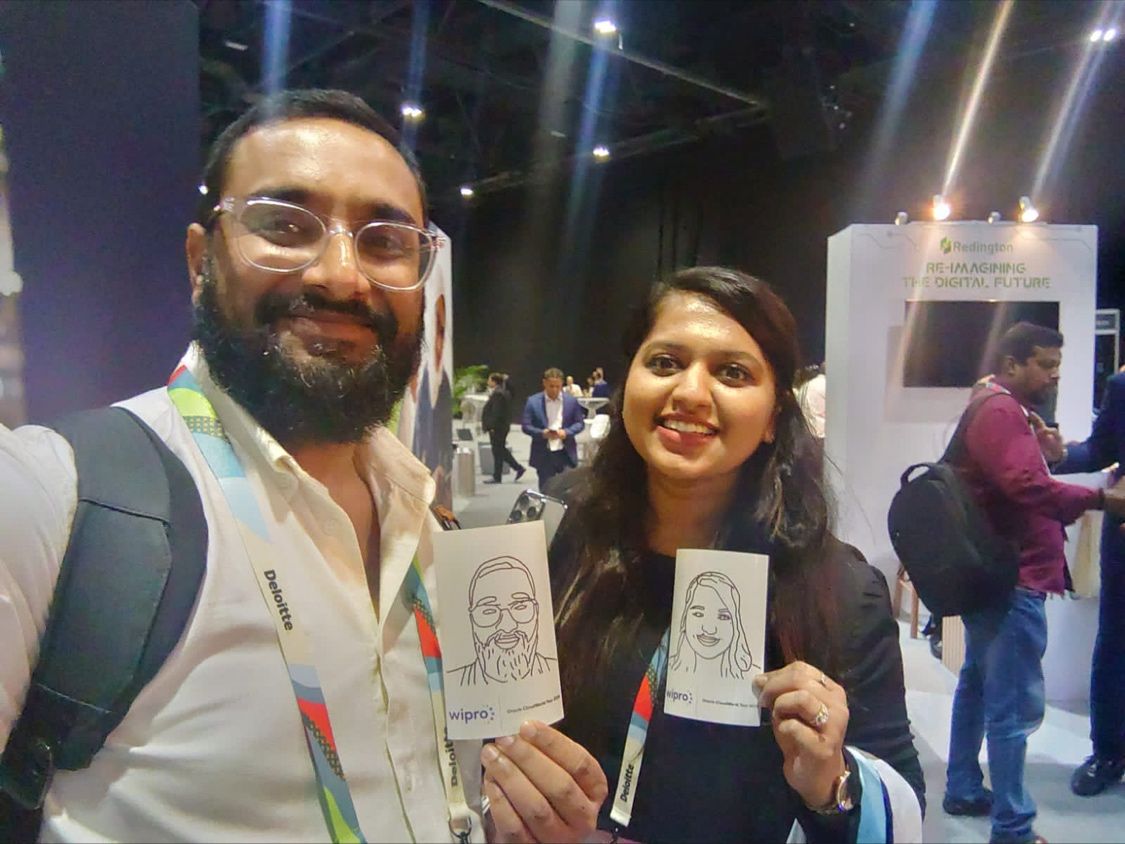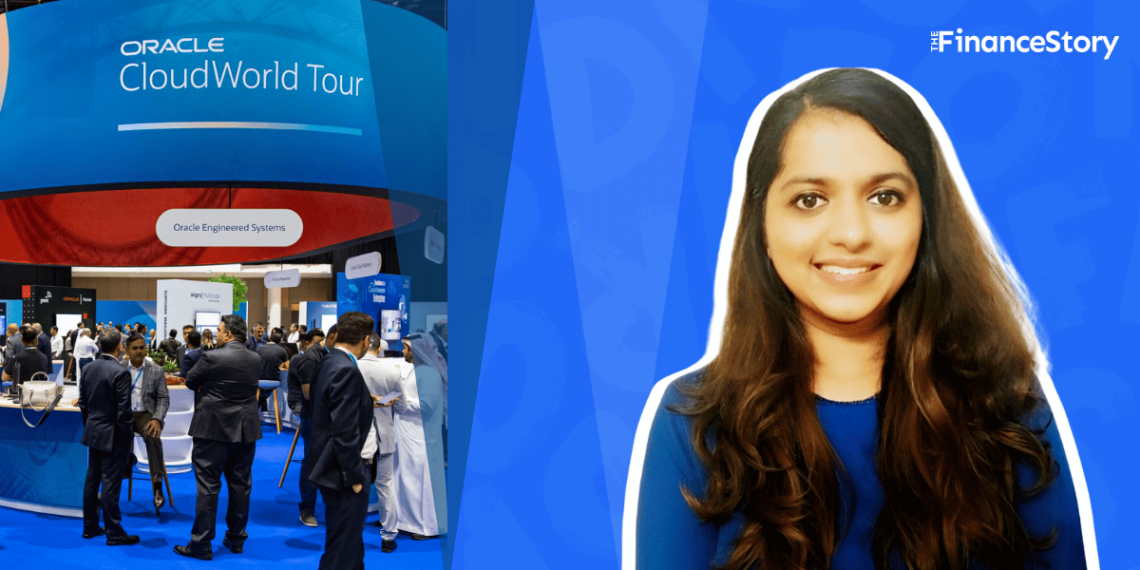- Hi, I am Aayushi Natani a Chartered Accountant and Tax professional with WTS Dhruva Consultants Dubai.
- On 23rd Jan 2024 I attended the Oracle Cloudworld Tour 2024 that focused on GenAI in Taxation.
- I was accompanied by Bilal Mansoor, Director and Head of Tax Technology Transformation at WTS Dhruva Consultants.
- Here are my learnings.
Generative AI
The event showcased the latest advancements in cloud infrastructure, databases, and applications but the star of the event was “Generative AI”.
What is GenAI? Generative AI, often referred to as GenAI, is a type of artificial intelligence that is capable of generating new content such as text, images, videos, and other media. It uses generative models to create these outputs, often in response to prompts.
You have already heard of ChatGPT which is a prime example of Gen AI.
Why should you care about Gen AI as a Tax Professional?
GenAI can enhance the capabilities of tax professionals and organizations in the medium to long term.
Here are some interesting use cases that I observed and you will be amazed by it as well.
- Automating complex processes like expensing, accounts receivable, and tax calculations
- Automating analytics by building virtual assistants
- Contextual insights and integrating with ERP for improving reporting
- Modifying narrations for entries, and generating explanations for data
- Real-time data sharing between taxpayers and tax administrators
- Querying enterprise data – Querying enterprise data involves searching and retrieving data from one or multiple databases within an organization. And GenAI can significantly enhance the process.
- Synthesizing of unstructured data – Synthesizing unstructured data means using artificial intelligence (AI) to create new, similar data based on existing unstructured data.
Over the next few months, organizations will prioritize their innovation efforts in this area. And it is safe to say that this is just the beginning of this journey.
So be ready.

Cloud Technology
While the cloud may seem like a purview of the IT team, in finance projects, I’ve often encountered difficulties when different cloud services don’t work well together. So, efforts to address this problem are a positive step from my point of view.
Here is what we observed in the event,
- We noted the efforts Oracle made to advocate for multi-cloud strategies.
- It’s great to see Oracle, along with Microsoft, Amazon, and others, put forward cloud propositions better tailored to the needs of the region. This will offer organizations a lot of flexibility.
Cloud technology has revolutionized the tax industry significantly and continues to do so. Here is how Cloud helps the tax industry in their day to day operations,
- Boosting Efficiency: Cloud-based applications streamline tax filing, making it faster and more accurate.
- Enables Real-Time Compliance: Cloud ERPs provide immediate insights into tax risk and predictive analysis.
- Reduce Costs: Cloud computing in tax reduces costs and improves resource management.
- Transform Tax Functions: The shift to cloud-based applications enhances operational effectiveness.
- Improves Data Accessibility: Cloud technology ensures real-time access to tax-related data.
- Increases Resilience and Adaptability: The shift to the cloud opens up opportunities for tax functions to operate more effectively and become more resilient.
Also read: Future of AI is India: Why finance professionals in India must prioritize upskilling
Low code/no code
Along with the other themes, we made a point to examine what’s new in the LCNC (Low code/no code) world.
Low-code and no-code are software development approaches that aim to make creating applications easier and more accessible, for people with limited coding experience.
The gap between the enterprise software capability and the needs of organizations is never going to disappear, and LCNC could be that bridging stone.
The advantages of a platform such as Oracle Apex were clear – being able to leverage the integrations to the cloud platform, and all its various services (including, Gen AI).
The use of low-code is expanding beyond the tax department to other areas of the business, despite some resistance to change.
While you may think that as a Tax Professional, this does not hold any significance, it does.
- LCNC provides advantages for both tax professionals and clients, such as automating data collection and intake, performing data validation and calculations, preparing standard tax returns, and simplifying client communication.
- Low-code development platforms (LCDPs) are effective tools for simplifying and automating different tasks in the tax process.
Wrapping up
Overall the experience was phenomenal. I got to participate in insightful sessions, hands-on workshops, and engaging discussions with many amazing minds.
I brought back valuable insights that will further enhance our services at WTS Dhruva. I look forward to applying these newfound learnings, driving innovation, and contributing to our ongoing success.
It is high time that Finance and Tax Professionals gain knowledge on this topic. There is no other option.
That’s how you can identify the opportunities, and limitations in these technologies to develop a plan. It would help you navigate a fast-changing landscape of finance/tax technology.







